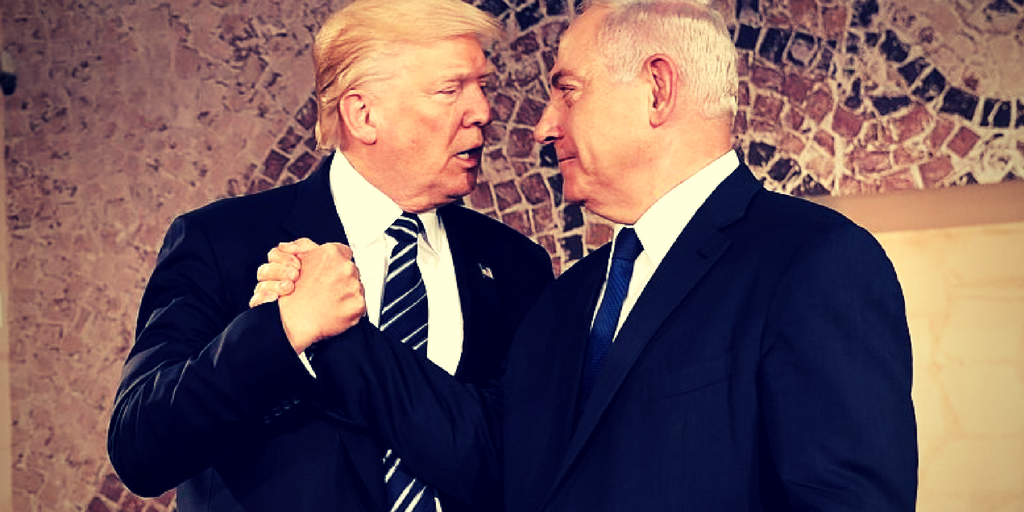With Russia supporting a Syrian-Hezbollah-Iranian attack on rebel positions in Daraa, putting them in striking position of northern Israel and Gaza continuing to heat up, literally, the USA has placed extra emphasis on its alliance with Israel.
Prime Minister Netanyahu said the following in yesterday’s cabinet meeting:
“Over the weekend I had two important meetings with Jared Kushner and Jason Greenblatt. We discussed the diplomatic process and regional issues, and there was special focus on the situation in Gaza. I must say that there was absolute support for our positions and our actions to ensure the security of the State of Israel and its citizens in the area adjacent to the Gaza Strip, which was expressed publicly by the American administration’s envoys. The issue also came up of how it might be possible to resolve the humanitarian problem in Gaza without strengthening Hamas. These matters are clear – first of all how to ensure security and how to prevent a broader flare-up, if it is at all possible. I expressed great appreciation for President Trump, Secretary of State Pompeo and of course for Ambassador Haley for the continual and strong support at the UN, which is very impressive.”
Given the tension rising in the region it is hard to understand why President Trump is still placing an emphasis on Middle East Peace. The President met with Jordan’s King Hussein yesterday at the White House while Kushner and Greenblatt were speaking with Netanyahu just days earlier. With the proverbial noose tightening around both countries, why is the administration focusing on something that seems so far away?
Jordan is Cornered, Will they Fold?
The administration’s peace plan is done and like the Palestinian Authority has hinted, they are not included. President Trump’s style is to apply maximum pressure to the side who is most obstinant. In this case, it is Jordan, or let’s say Jordan’s King.
The Hashemite’s rule over its population, which is 80% Palestinian is tenuous. In fact he relies almost entirely on US and Israeli security to keep safe. Now the Saudis and Gulf States have decided to prop up Jordan’s economy. With years of playing both sides, President Trump has decided to call the king of Jordan out.
With Iran, Hezbollah, and Syria closing in and the Palestinians in Jordan threatening a real revolt, Trump has the leverage he needs to force Jordan to accept the USA’s peace plan. Of course, that would mean an end to the Palestinian Authority with Jordan taking responsibility for those residents in 40% of Judea and Samaria that identify as Palestinian.
President Trump wants to use the external pressures of Iranian hegemony to force Jordan to accept it real role as “Palestine.”
2 Palestines and One Greater Israel
The plan that has seemingly been accepted within the Trump Administration is the breaking apart of the Oslo Peace narrative of the last 25 years. With Gaza, essentially independent, it has become a defacto Palestine. It has a government and is in charge of its own security and yes, very contiguous. Jordan will take over responsibility for areas A and B in Judea and Samaria and retain their custodial rights over Islamic religious sites in Jerusalem. Israel will annex area C.
This is the plan that appears to be on the table and this is precisely why Jordan is so nervous about it. King Hussein has refrained from giving any credence that he already rules over Palestine. Afterall, it is his rule which is artificial and if he agrees to Trump’s plan without any security and economic guarantees he will be risking his own neck with nothing in return.
President’s Trump’s emphasis on pushing a peace plan at this time is part of his larger strategy in using the rising tensions of war to force those leaders to come to the table.

